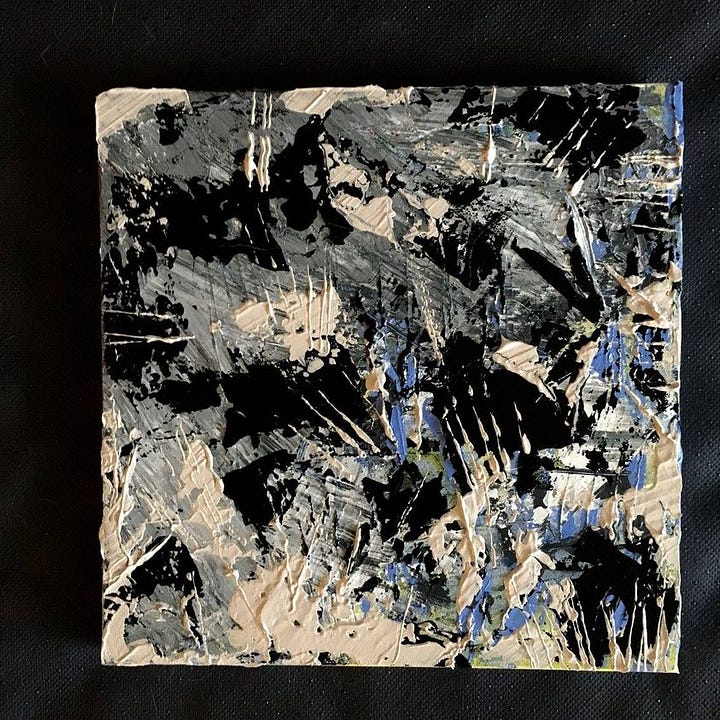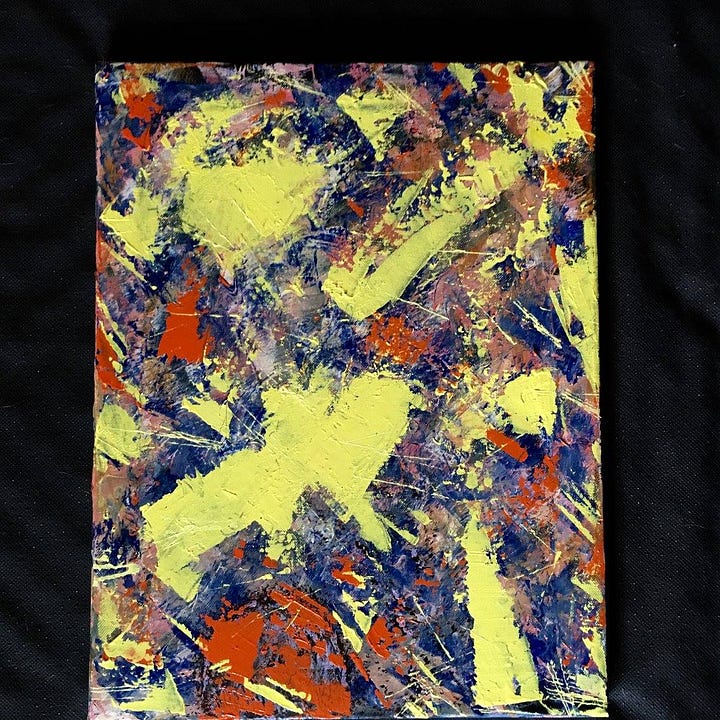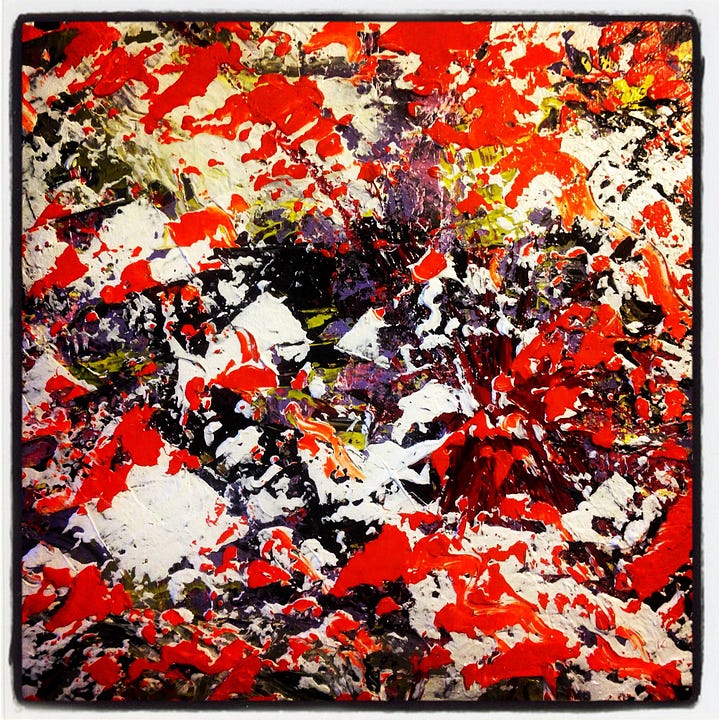Cracking Consciousness: Is Science Flirting with the Theory of Everything
Or is the "hard problem of consciousness" not that hard after all?




I play around with abstract art on the side as a personal hobby. As you can see, it’s not that good and may even seem slightly psychotic. But these artistic works are a decent metaphor for the subject of “consciousness”, which sometimes feels like one big splattering of chaos slung onto the canvas of collective understanding. No offense to the iconic Jackson Pollock and his extraordinary abstract art, using the drip technique
For the purpose of this article, I am going to do my best to at least sort out some of the key components if you want to explore the subject of consciousness further. This is one of those articles where exploring live links could be rewarding.
Why talk about consciousness?
Why talk about consciousness? Don’t we already have plenty of other things we should be talking about?
A child dies from hunger every 10 seconds
1 million new girls each year are abducted into forced child prostitution
The number of USA suicides in 2023 reached a record level
Close to 600,000 people experience homelessness across America
In 2023, U.S. depression rates reached new highs
And we need to sort out consciousness because…. ???
I’m not trying to be clever about questioning the merit of discussing consciousness. I have a limited number of days left on this earth and a limited number of hours in each of those days, and at this point I have used more days and hours than I have left to live. I genuinely want to publish articles on Substack that meaningfully contribute to individual and collective well-being. The truth is that there’s more we don’t know than we do know when it comes to consciousness. This is true of many things, and isn’t a reason not to talk about something.
So let me share a few reasons why it makes sense to explore the subject of consciousness:
Consciousness has become a top area of interest in science. Typically, when science marshals its focus and resources to research and understand any phenomenon, we discover something extraordinary we didn’t know before. What would you say is the greatest scientific discovery of all time. The double helix of DNA? Penicillin? Theory of relativity? Higgs Boson? Electricity? What if the next greatest scientific discovery of all time is related to the area of consciousness?
There are ontological implications from the study of consciousness. Ontology concerns claims about the nature of being and existence. For me, I still can’t figure out all the functions on my sports watch, much less concern myself with what constitutes existence. But then again, if what we call “existence” is a video game some Extraterrestrial is playing somewhere in the multiverse… we’d maybe want to know that, right? I don’t know, maybe we wouldn’t. But still, what if knowing the way things really are at the most fundamental level could liberate humankind in ways we never imagined. Or what if it had a radical impact on how we think about death.
A few typical ontological questions would be:
Is existence an event, flux, process? Or is it something static, stable, or unchanging?
How is existence related to time and space?
Is existence a property? What does it mean to say something exists or does not exist?
Consciousness may connect science and religion or spirituality together in a way that it never has before. There has always been a contentious relationship between religion and science. And then there is the problem of how pseudoscience get’s interjected into spirituality in ways that are concerning. But putting all that aside, there could be some meaningful spiritual implications from the study of consciousness. Panpsychism may be a current example of a connection between the two.
What happened is…
Full disclosure: I started writing this article with a fairly clear idea of where I was headed. But the deeper I kept digging I discovered some things I didn’t expect to find. There’s a saying in sports that says, “That’s why you play the game.” The idea is that no matter the odds of a team winning or losing a sports game, you don’t ever really know the outcome until you actually play the game. Despite the odds, anything can happen. Right? Think “miracle on ice”, when the U.S.A. as major underdogs beat the Soviet Union in the 1980 Olympics.
I mostly knew where I was headed with this article on consciousness, especially since I already had quite a bit of knowledge on the topic. But then as I was digging deeper into it, there were a few things that occurred to me that never had before. Admittedly, they probably should have occurred to me but they didn’t. Let me mention a few:
There could be an ego war in the science of consciousness
Here’s what I mean. What would top the discovery by David Chalmers, referred to as the “hard problem of consciousness”? What would top this is someone solving it. Right? If you were the scientist who solved the hard problem of consciousness, you just might win a Nobel Prize. Maybe David Chalmers, Christof Koch, Anil Seth and Antonio Damasio should fight it out in the Octagon.
Religion needs the hard problem of consciousness unsolved
Religion (and some forms of “spirituality”) want the hard problem of consciousness to stand without any scientific explanation. This relates to the idea of “God of the gaps”, a theological concept that says that gaps in scientific understanding are indications of the existence of God. For example, the soul is typically defined as a non-physical component of our existence, and said to persist beyond death of the body. The hard problem of consciousness, without any credible scientific explanation, opens the door to this idea of first-person experience, which afterlife theories such as Heaven would require.
Is the “hard problem of consciousness” a myth?
The existence of a hard problem is controversial within the academic community. The existence of the hard problem is disputed. There are many available explanations of consciousness from a biological perspective; even if you don't like them. But we don’t need to continue insisting that it can’t ever be solved. Some people feel that the fields of philosophy and spirituality have made more of the hard problem of consciousness than it actually is, scientifically.
Keep reading with a 7-day free trial
Subscribe to Deconstructionology with Jim Palmer to keep reading this post and get 7 days of free access to the full post archives.




